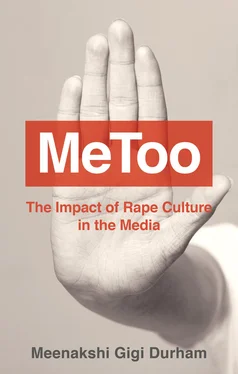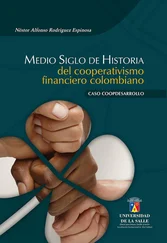I am persuaded by their reasoning. Sexual violence doesn’t usually happen in a clear-cut fashion, only one incident or form of sexual misconduct at a time, especially when the abuse is ongoing, as in a workplace or in a family setting. So, pace Utt, I use “sexual violence” as an umbrella term that encompasses abuse, assault, and harassment, occasionally substituting specific terms for a particular incident.
Following Kimberlé Crenshaw, I am committed “to the need to account for multiple grounds of identity when considering how the social world is constructed,” 25especially with regard to sexual violence. Recognizing that racial classifications are constructed and often arbitrary, but nonetheless meaningful because of their history and cultural connotations, I use contemporary terms for racial categorizations: “African American” or “black,” as the context requires; “white” for people of Caucasian descent; “Native American” or “Native” for indigenous peoples, specifying tribal membership whenever possible; particular Asian and South American national or subcultural classifications as appropriate.
As for gender, I similarly recognize the fluidity and constructedness of its categories. For brevity’s sake, I use “woman” to designate any person who identifies as a woman, whether cis or trans or in any other way; and the same goes for “man.” Following the terminology in the Human Rights Campaign report A Time to Act , 26I use “trans” for anyone whose gender identity challenges traditional binary categories, including people who are nonbinary, gender fluid, genderqueer, gender diverse, or gender expansive.
Finally, my periodization of feminist thought and activism follows the “wave” model, in which the first wave corresponds to the period in the late nineteenth and early twentieth century most prominently defined by the women’s suffrage movement in the United Kingdom and United States; the second wave spans the 1960s and 1970s, when feminism addressed a range of social and sexual rights; and the third wave begins in the 1990s, being marked by a focus on greater inclusivity, and also by the reclamation of “girl culture.” The second wave marked the emergence of global feminisms as well: the first World Conference on Women was held in Mexico City in 1975. It is clear that the waves were not distinct; they overlapped in many respects. It is also true that this model discounts the activism of women of color that predated the suffrage movement. It might elide the diversity of subsequent feminist activism, too. With rueful acknowledgment of its inadequacy, I rely on the wave metaphor as a good shorthand for the timeframe and general theme of feminist activism.
1 1 Tarana Burke’s nonprofit organization “Just Be” has trademarked the phrase as me too™, yet it is also widely used as a common expression, and the media version is frequently MeToo. #MeToo is the Twitter hashtag launched by the actor Alyssa Milano in 2017, amplifying Burke’s previous activism around sexual violence.
2 2 Ohlheiser 2018. See also Fox and Diehm 2017; Dalvin Brown 2018.
3 3 Buchwald, Fletcher, and Roth 2005: 5.
4 4 Griffin 1971: 27.
5 5 Onwuachi-Willig 2018: 107.
6 6 Herman 1984: 45–6.
7 7 Russo 2001: 7.
8 8 Crenshaw 1991: 1241.
9 9 Ibid.
10 10 Russo 2001: 12.
11 11 Burt 1980: 217, 218.
12 12 See e.g. Barn and Powers 2018; Burt 1980; Edwards et al. 2011; Franiuk, Seefelt, and Vandello 2008; Haywood and Swank 2008: 373–89; Lonsway and Fitzgerald 1994; Ryan 2011.
13 13See the definition of rape in FBI 2013.
14 14 Castañeda 1998: 317.
15 15 Jacquet 2019; Mallory, Hasenbush, and Sears 2015; Spohn and Tellis 2012.
16 16 Morgan and Oudekerk 2018; World Health Organization 2012.
17 17 Foucault 1980: 194–5.
18 18 Woodhull 1988: 168.
19 19 Kellner 1995: 42.
20 20 Zacharek, Dockterman, and Edwards 2017: 45.
21 21 Freire 1998: 478.
22 22 Kelly 1988: 163.
23 23 Utt 2014.
24 24 Kelly 1988: 76.
25 25 Crenshaw 1991: 1245.
26 26 Human Rights Campaign and Trans People of Color Coalition 2017.
Конец ознакомительного фрагмента.
Текст предоставлен ООО «ЛитРес».
Прочитайте эту книгу целиком, купив полную легальную версию на ЛитРес.
Безопасно оплатить книгу можно банковской картой Visa, MasterCard, Maestro, со счета мобильного телефона, с платежного терминала, в салоне МТС или Связной, через PayPal, WebMoney, Яндекс.Деньги, QIWI Кошелек, бонусными картами или другим удобным Вам способом.












